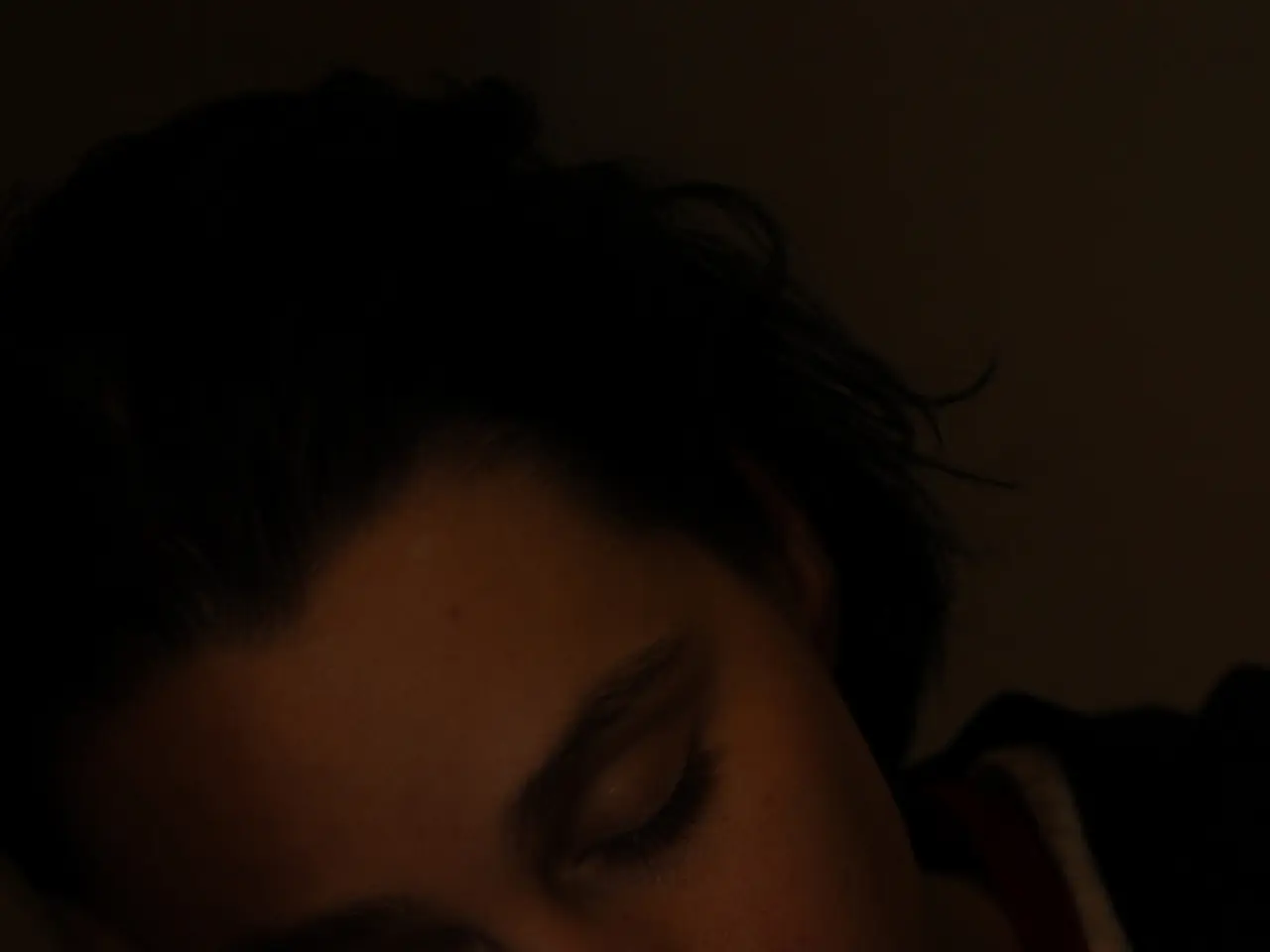Age-related shift in sleep patterns: Understanding the reasons behind earlier wake-ups and strategies for improved slumber.
### Title: Enhancing Sleep Quality in Older Adults: A Comprehensive Guide
As we age, various factors can impact the quality of our sleep. This article explores the key contributors to sleep issues in older adults and offers practical strategies to improve sleep habits.
#### Factors Contributing to Sleep Quality in Older Adults
1. **Biological Changes**: As people grow older, they tend to spend less time in deep sleep and more in lighter stages, leading to more frequent waking episodes. Hormonal fluctuations, particularly a decrease in melatonin, can disrupt the sleep-wake cycle[1][5].
2. **Lifestyle Changes**: Retirement, reduced social or physical activity, and changes in routine can affect circadian rhythms[1]. Chronic conditions and mobility issues may also reduce daylight exposure and increase sleep disruptions[1].
3. **Sleep Disorders**: Conditions like insomnia, nocturia, restless legs syndrome, and sleep apnea become more prevalent with age, significantly affecting sleep quality[1][5].
#### Improving Sleep Habits for Better Sleep Quality
To enhance sleep quality in older adults, consider the following strategies:
1. **Environmental Adjustments**: Create a sleep-friendly environment by ensuring the room is dark, quiet, and at a comfortable temperature. Use the bed only for sleeping[2][5].
2. **Routine and Lifestyle**: Maintain a consistent sleep-wake schedule, even on weekends and holidays. Engage in regular physical activity (avoiding it before bedtime) to improve sleep depth[3].
3. **Light Exposure**: Expose yourself to natural light in the morning to regulate your circadian rhythms[3].
4. **Diet and Nutrition**: Limit caffeine and alcohol intake, and have light snacks containing tryptophan and complex carbs before bed[3].
5. **Alternative Therapies**: Consider activities like tai chi, yoga, or using weighted blankets for relaxation[3]. Acupuncture and light therapy may also be beneficial for some individuals[3].
6. **Addressing Sleep Disorders**: Consult healthcare professionals for managing sleep disorders like insomnia or sleep apnea, possibly using treatments like CPAP therapy for sleep apnea[5].
#### Additional Considerations
- Older adults with multiple health issues, including dementia, Parkinson's disease, anxiety, conditions causing chronic pain, diabetes, heart disease, are more likely to report poor quality sleep and less than six hours a night. - On average, older adults sleep less each night by approximately 30 minutes every 10 years. - Experts recommend that adults get at least seven hours of sleep per night. - Sleep disorders like insomnia, nocturia, restless legs syndrome, and sleep apnea become more prevalent as you age. Insomnia affects up to 50% of older adults, nocturia affects up to 80% of older adults, restless legs syndrome may impact one in four older adults, and sleep apnea is 1.7 times more common in adults age 60 and older. - Older adults tend to spend less time in deep sleep and more time in lighter stages of sleep, leading to more frequent awakenings. - Not getting enough quality sleep can increase the risk of chronic diseases and worsen existing health issues. - On average, older adults wake up three to four times per night. - As you age, your sleep patterns change, with circadian rhythms shifting forward, making you ready to go to bed and wake up earlier. - Understanding the underlying reasons for sleep problems may help older adults find a solution. - Sleep problems in older adults can lead to memory issues, mood changes, and an increased risk of falls and accidents. - The underlying reasons for sleep problems in older adults can be complex, often a combination of aging, health issues, and sleep disorders.
#### Tips for Getting Better Sleep as You Age
- Address underlying health issues. - Avoid caffeine, nicotine, and alcohol close to bedtime. - Establish a sleep schedule. - Expose yourself to natural light. - Increase physical activity. - Make your room sleep-friendly. - Stop using screens an hour before bedtime. - Consult a primary care physician if changing sleep habits doesn't improve sleep quality or if you suspect a sleep disorder.
Hormonal fluctuations, such as changes in melatonin levels, cortisol levels, and testosterone levels, can also lead to changes in sleep-wake patterns. For people assigned female at birth (AFAB), menopause involves hormonal changes that can cause night sweats and hot flashes, disrupting sleep.
- The changes in melatonin levels during aging can cause disruptions in the sleep-wake cycle.
- Maintaining a consistent sleep-wake schedule, even during weekends, can help regulate circadian rhythms in older adults.
- Engaging in regular physical activity can help improve sleep depth in older adults.
- Limit caffeine intake in the latter part of the day and avoid alcohol before bed, as they can negatively impact sleep quality.
- Consuming light snacks with tryptophan and complex carbohydrates before bed can help improve sleep.
- Consider alternative therapies such as tai chi, yoga, or using weighted blankets for relaxation to promote better sleep.
- Acupuncture and light therapy may be beneficial for some individuals seeking improved sleep quality.
- CPAP therapy is a treatment option for managing sleep apnea in older adults.
- It is essential to address underlying health issues, like anxiety, chronic pain, dementia, Parkinson's disease, diabetes, and heart disease, as they can contribute to poor sleep quality.
- Pets, relationships, travel, cars, shopping, and hobbies such as gardening and home improvement can provide stress relief and contribute to better sleep.
- Evidence suggests that certain skincare products containing CBD may help manage neurological disorders and improve sleep.
- Fashion and beauty habits, like wearing comfy clothing and investing in a high-quality mattress, can contribute to a sleep-friendly environment and overall lifestyle.




